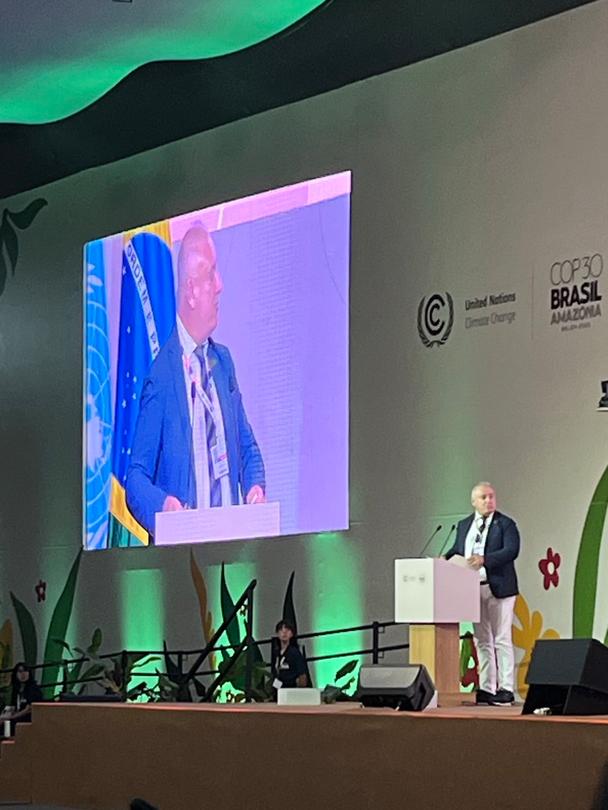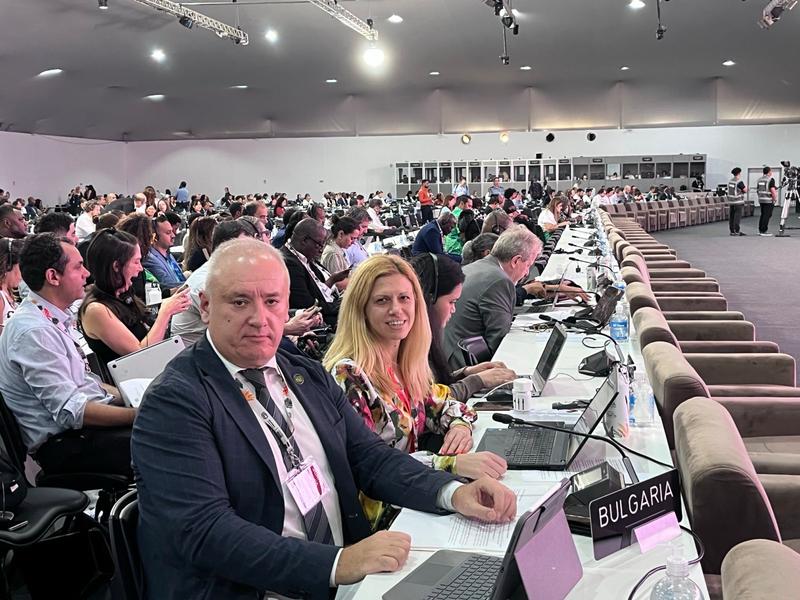Bulgaria at COP30: a call for unity between goals and concrete actions
20 Nov, 2025 | 09:04During the high-level ministerial segment of the UN Climate Change Conference (COP30), Deputy Minister of Environment and Water Atanas Kostadinov called for unity between goals and ambitions, on the one hand, and concrete actions and measures, on the other.
Deputy Minister Kostadinov outlined three key messages to COP30 participants:
First – the need for efforts to achieve the 1.5°C target
Bulgaria continues to expand renewable energy sources and to modernize its energy system, calling on all countries to contribute to achieving compliance with the recommendations of the scientific community. In 2023, greenhouse gas emissions in Bulgaria decreased by more than 60% compared to our base year, and in 2023 they decreased by more than 22% compared to emissions from the previous year.
Second – putting adaptation at the center of climate policy
Bulgaria supports the adoption of a list of indicators that would allow for objective reporting of progress in national and sectoral adaptation policies.
Third – unity based on diversity is the strongest tool of the international community
Deputy Minister Kostadinov made an analogy with the experience within the EU, which proves that high goals can be achieved, even when national conditions differ. “When we join forces, we become much better prepared for a challenge like climate change,” Deputy Minister Kostadinov emphasized.
In conclusion, Deputy Minister Kostadinov reminded that although we are all children of nature, we cannot face the climate crisis “like children would,” but must do so with the wisdom and maturity that today’s times require. “The time for preparation is over – it is time for implementation. Bulgaria extends a hand so that we can move forward together. Let COP30 be the moment when determination replaces hesitation.” – he concluded his speech.
Brazil, as the host and chair of COP30, defines the main focus of the conference as a “conference of implementation”. This means that ten years after the signing of the Paris Agreement, efforts should be directed towards concrete actions and measurable results.
According to the Brazilian presidency, the approach should be guided by three key principles – implementation, inclusion and innovation. The vision proposed by the host country is for a global “joint effort” that would unite governments, the private sector, scientific circles, civil society organizations, and local communities in a common goal for a sustainable future.
Among Brazil’s priorities, placing tropical forests, and especially the Amazon, at the center of climate policy stands out. The aim is to see them not only as carbon sinks, but also as a source of economic and social progress for local communities. Another essential priority is to accelerate the energy transition through the development of renewable sources, the transformation of industry and transport, and a just exit from dependence on fossil fuels.

